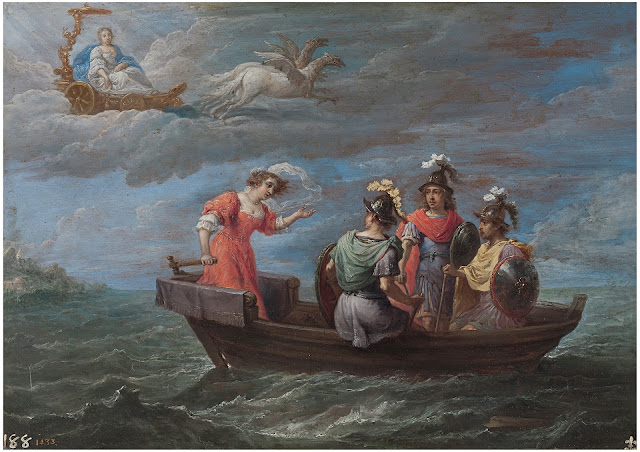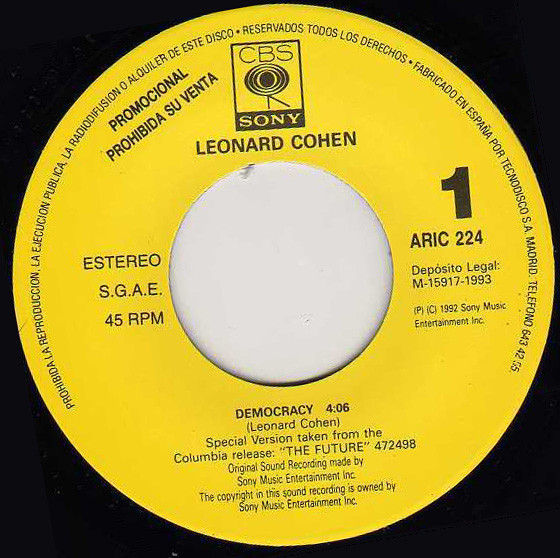International Cooperation between Radical Right-Wing Parties A New Threat to Global Democracy?
Héctor Briceño, PhD
Since its peak in 2005, when over half of the world's countries were considered democracies, democracy has experienced a wave of autocratization. This wave is perhaps the most significant since the 1930s, with fragile and consolidated democracies experiencing significant setbacks and, in some cases, even democratic breakdowns (Lührmann & Lindberg, 2019; Briceño, 2023).
Conversely, authoritarian regimes undergo a process of expansion while strengthening their capacity for political resilience and promoting their legitimacy as a global alternative to Western democracy.
Figure 1 illustrates the complexity of this phenomenon by showing the number of democratic transitions and authoritarian regressions since the beginning of the twentieth century. Following the fall of the Soviet bloc in the late 1980s and early 1990s, the number of democratizations reached its peak and has since progressively decreased. Conversely, the number of autocratization processes has maintained an upward trend since the 1950s, surpassing the number of democratization in the last period of the series (2010-2022).
Political science has extensively addressed these processes through the broad paradigm of the 'Crisis of Democracy' literature, which covers a wide range of problems, both national and international, that converge in multiple threats to democratic development in a globalized world.
Among the various meanings of the term 'crisis of democracy', at least three analytically distinct but interrelated phenomena can be identified:
§ Firstly, this literature discusses the 'decline', 'backsliding', or 'democratic erosion', also known as 'episodes of autocratization' (Lührmann & Lindberg, 2019). These episodes refer to the erosion experienced by consolidated democracies in America and Europe, led mainly by populist leaders or movements. While these episodes do not necessarily imply the collapse of democracies, their extent and dimension generate concerns about the resilience of the democratic political system.
§ Secondly, this literature addresses cases of democratic breakdowns and the emergence or return of authoritarianism of different kinds. Most of these cases, although not all, come from countries that democratized during the third wave of transitions that began in 1974 (Huntington, 1991; Mainwaring & Bizzarro, 2019).
§ A final phenomenon grouped under the concept of 'crisis of democracy' is the diversification and updating of authoritarian regimes' strategies of functioning, struggle, and survival, which have strengthened their capacity for resilience in what can be called a new phase of authoritarian modernization (Brooker, 2000).
Among the various forms of authoritarian modernization, the adaptation of democratic institutions into the structures of authoritarian regimes stands out as an attempt to emulate democracy (Diamond, 2002; Schedler, 2006; Levitsky & Way, 2010) in order to gain the national and international legitimacy enjoyed by democratic regimes worldwide.
This last meaning of the term Crisis of Democracy also includes the analysis of the authoritarian international cooperation and promotion mechanisms, including economic cooperation, so-called 'soft power' (Walker, 2016), and other strategies of knowledge and resource diffusion aimed at promoting the emergence of non-democratic regimes, as well as the promotion of anti-democratic actors (leaders and parties) within liberal democracies (Kneuer & Demmelhuber, 2020).
Figure 1. Democratic transitions and regressions. 1900-2022
Source: Electoral Democracy Index (EDI), data from the Varieties of Democracy project (V-Dem). Own calculations.
Cooperation among far-right parties
Although international cooperation among authoritarian regimes has been characterized by political pragmatism over ideological identities, allowing the convergence of a plurality of actors under their common anti-democratic denominator (von Soest, 2015), at least during the first 15 years of the 21st century, such as China, Iran, Russia, Cuba and Venezuela, among others, the consolidation of the autocratic wave, with the consequent proliferation of authoritarian regimes, has led to the emergence of actors whose strong political ideology roots makes their harmonious integration into existing authoritarian cooperation structures increasingly difficult. In particular, there has been an increase in the emergence of radical right-wing actors and parties.
A growing wave of radical right-wing parties and leaders is becoming a clear challenge to democracy. While they have gained access to government in some countries, they are consolidating as opposition parties in many others, using democracy to spread their messages of polarization and anti-democratic exclusion.
According to the V-Party database, between 2000 and 2019, 61 political parties in 37 countries worldwide can be classified as radical right-wing parties. Over half of these parties are located in Europe and Latin America.
Graph 2. Political parties. Radical Right, World, 2000 – 2019
Source: Ideological Scale and Antipluralism Index (To what extent does the party show a lack of commitment to democratic norms prior to elections?), data from the V-Party project. Own calculations.
According to V-Party project data, radical right-wing parties account for about 9% of all parties on the right of the right-left ideological scale and about 5% of all parties. In contrast, about 6% of all parties at the other end of the scale are radical left parties.
In addition, several non-radical right parties are modifying their narratives, influenced by the increasing achievements of right-wing radical leaders and parties worldwide. This leads us to question whether these actors pose a new challenge to global democracy.
Research questions:
Do radical right-wing authoritarian parties and leaders in Europe and America cooperate?
What are the main cooperation mechanisms and issues surrounding cooperation? Do radical right-wing parties position themselves as an alternative in conflict with authoritarian left-wing parties and regimes?
References
§ Bale, T. & Rovira Kaltwasser, C. (Eds.) (2021). Riding the Populist Wave: Europe’s Mainstream Right in Crisis. Cambridge University Press.
§ Bermeo, Nancy. Questioning Backsliding. Journal of Democracy 33, no. 4, 155-159 (2022).
§ Briceño, Héctor. ¿Qué tan distintos son los nuevos autoritarismos?. Revista LASA-Forum, Vol. 54, Issue 2, 6-14, (2023) https://forum.lasaweb.org/past-issues/vol54-issue2.php
§ Brooker, Paul. Non-Democratic Regimes. Camden: Palgrave Mcmillan; 2000.
§ Diamond, L. J. Thinking About Hybrid Regimes. Journal of Democracy 13, 21–35 (2002).
§ Huntington, Samuel. The Third Wave: Democratization in the Late Twentieth Century. University of Oklahoma Press; 1991.
§ Kneuer, Marianne and Thomas Demmelhuber. Authoritarian Gravity Centers. A Cross-Regional Study of Authoritarian Promotion and Diffusion. Londres: Routledge; .2020.
§ Levitsky S. and Way LA. Competitive Authoritarianism: Hybrid Regimes after the Cold War. Cambridge University Press; 2010.
§ Lührmann, A. and Lindberg, S. I. A third wave of autocratization is here: what is new about it? Democratization 0, 1–19 (2019).
§ Mainwaring, Scott y Fernando Bizzarro. The Fates of Third-Wave Democracies. In Journal of Democracy 30: 99–113 (2019).
§ Mudde, C. The Populist Radical Right: A Reader. Londres: Routledge, (2016).
§ Mudde, C. Populist Radical Right Parties in Europe. Cambridge: Cambridge. University Press, (2007).
§ Startin, Nicholas. Where to for the Radical Right in the European Parliament? The Rise and Fall of Transnational Political Cooperation, Perspectives on European Politics and Society, 11:4, 429-449, (2010).
§ Shedler, Andreas. The logic of electoral authoritarianism. In Electoral Authoritarianism: The Dynamics of Unfree Competition, Boulder: Lynne Rienner Publishers, Inc, 1-26 (2006).
§ von Soest, C. Democracy prevention: The international collaboration of authoritarian Regimes. European Journal of Political Research, Volume 54, Issue 4, 623-638 (2015).
§ Wojczewski, Thorsten. The International Cooperation of the populist radical right: building counter-hegemony in international relations. In International Relations, 0-(0), 1-26, (2024).









Comentarios
Publicar un comentario